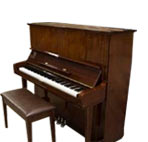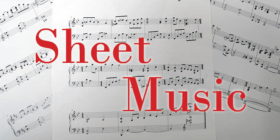It’s music to my ears and to my heart. Playing the piano can make you healthier and smarter. There’s scientific research to prove it. Here’s the top 10 ways being a piano player can improve the quality of your life.
1. Music keeps your ears young.
Older musicians don’t experience typical aging in the part of the brain (the auditory cortex) that often leads to hearing troubles. It’s never too late to start taking piano lessons and prevent these age-related changes. (The Record.com – Michael Roizen, MD and Mehmet Oz, MD)
2. It boosts your test scores.
Middle school and high school students who participated in instrumental music scored significantly higher than those that didn’t in standardized tests. University studies conducted in Georgia and Texas found significant correlations between the number of years of instrumental music instruction and academic achievement in math, science and language arts. (University of Sarasota Study, Jeffrey Lynn Kluball; East Texas State University Study, Daryl Erick Trent)
3. It alters your brain.
Northwestern University scientists have pulled together a review of research into what music — specifically, learning to play music — does to humans. The result shows music training does far more than entertain us by playing the piano, for example. On top of that, it actually changes our brains.
The paper, published in Nature Reviews Neuroscience, is a compilation of research findings from scientists all over the world. According to the Northwestern scientists, the findings strongly indicate learning to play music adds new neural connections — and that primes the brain for other forms of human communication. The bottom line to all these studies: musical training has a profound impact on other skills including speech and language, memory and attention, and even the ability to convey emotions vocally. (NaturalNews)
4. It helps with language skills.
Researchers also found that musicians are better than non-musicians in learning to incorporate sound patterns for a new language into words. Their brains also appear to be primed to comprehend speech in a noisy background. Moreover, children with learning disabilities, who often have a hard time focusing when there’s a lot of background noise, may be especially helped by music lessons. Music training (like piano lessons Atlanta) strengthens the same neural processes that often are deficient in those with developmental dyslexia or those who have difficulty hearing speech in noise.
5. It keeps your brain “fit.”
Children who have had music lessons tend to have a larger vocabulary and better reading ability than youngsters who haven’t had any musical training. The Northwestern researchers concluded their findings making a case for including music in school curriculums: “The effect of music training suggests that, akin to physical exercise and its impact on body fitness, music is a resource that tones the brain for auditory fitness and thus requires society to re-examine the role of music in shaping individual development.”
6. It breeds future success.
Besides the joy piano playing brings, there is a strong link between playing the piano and the development of skills needed to be successful in life. Some of the benefits of playing the piano include developing strong discipline skills, patience, coordination, and dedication as well as an increased ability to memorize. According to a Michigan State University research project, piano-playing Americans reported that piano lessons significantly reduced their incidence of depression and anxiety.
7. It’s good for your well-being.
A piano player will also note a marked decrease in loneliness.
8. It’s a stress reliever.
Science says there are good medical reasons to play a musical instrument. It can reverse stress at the molecular level. (Studies conducted by Loma Linda University School of Medicine and Applied Biosystems; Medical Science Monitor)
9. It makes you feel good.
Making music can help reduce job burnout and improve your mood, according to a study exposing long-term care workers to recreational music-making sessions of group drumming and keyboard accompaniment. (Advances in Mind-Body Medicine)
10. It affects hormones.
Playing music increases human growth hormone (HgH production among active older Americans). Findings of a study revealed that the test group who took group keyboard lessons showed significantly higher levels of HgH than the control group people who did not play. (University of Miami)
These healthy benefits brought to you by the folks at CooperPiano.com.











Leave a reply